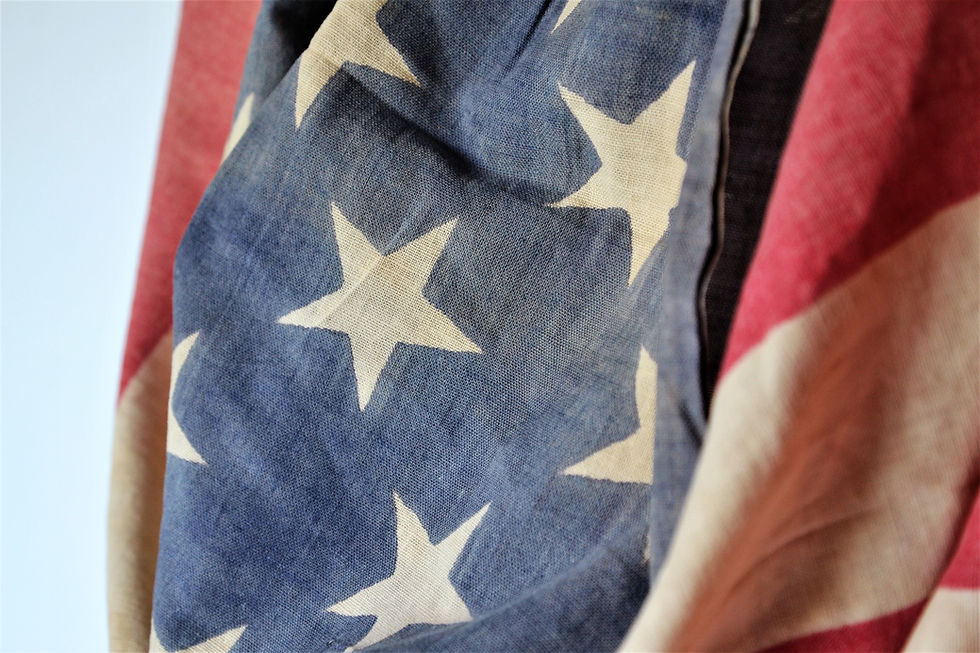Solitude and Military Leadership
- Jim Perkins
- Apr 18, 2016
- 3 min read
Updated: Oct 9, 2023
This week’s post is part three in the #Reflection Series. Our co-founder Jim takes a page from William Deresiewicz, Columbia University graduate, Yale English professor and author of A Jane Austen Education, How Six Novels Taught me About Love, Friendship, and the Things that Really Matter and Excellent Sheep: The Miseducation of the American Elite.

Photo by Matthew Henry on Unsplash
This title must seem like a contradiction. That was the same assumption that William Deresiewicz made when he spoke to cadets at West Point in 2009 on a very similar topic. It seems obvious that the two topics are diametric opposites: solitude being the absence of others, while military leadership is inherently about groups of people. So, in what way are these topics even related? The answer comes down to truly leading versus just getting stuff done.
In his lecture, William makes a compelling case that the difference between leaders and bureaucrats is that bureaucrats are just highly efficient hoop-jumpers whereas leaders have vision. He further argues that the only way to have vision is to think deeply which requires solitude. The problem is that the military is a bureaucracy which has a natural tendency to create hoop jumpers even though it needs to produce leaders.
Go to a staff meeting and you’ll see some hoop jumpers in action. In William’s words, they are the people “[w]ho can answer questions, but don’t know how to ask them. Who can fulfill goals, but don’t know how to set them. Who think about how to get things done, but not whether they’re worth doing in the first place.” Hoop jumpers aren’t bad, but they aren’t leaders.
Military leaders today are expected to be “agile and adaptive” and to think both independently and creatively. But bureaucracies don’t reward people who are thinkers – they reward hoop jumpers. Conversely, leaders can do the unpopular thing because they have thought through problems. They have the confidence and the courage to argue for ideas even when they don’t please superiors.
We can (and do) write books about mission command and we can talk about VUCA (volatility, uncertainty, complexity and ambiguity) and “wicked problems”, but creating thoughtful, visionary, and independent leaders takes more that doctrine – it requires solitude.
Solitude creates space and time for reflection. This reflection time is needed to build character, self-awareness, and intellectual capacity. This sort of deep thinking cannot happen in a multi-tasking and distracted world. Research has shown that multi-tasking is less effective than focused attention and the implications for solitude are even greater.
Chevy and I know that the constant barrage of blogs, news, social media, and work can be overwhelming. We admit that even our own blog can easily be a part of the noise, the sharing, the hyper-connectivity that fills up every free moment. But, we created Military Mentors to help solve this problem by giving you the tools and knowledge to enable you to find solitude.
If you’re in a quiet space, stop reading right now. Instead of reading, spend the next 10 minutes of quiet reflection. Then do it again tomorrow. Find 10 minutes to sit in solitude, free of distraction, where you can quiet your mind and allow yourself to find answers to important questions. Personal reflection can be incredibly natural.
It’s natural, but it’s also very hard. I started 2016 with a commitment to meditate for 15 minutes twice a day. I made it until mid-March and then I went back to my old routine. If you’re like me and can’t hold yourself to do it on your own, a partner can help. Just like fitness or a diet, a partner will keep you disciplined and together you will share in the benefits. But wait, isn’t that the opposite of solitude?
In a sense, yes, but let’s explore that for a moment. Solitude is required for self-refection, but a discussion with a trusted mentor can fill the same need. You can discuss your doubts, you can ask important questions and you can be pushed to account for your past choices. That’s reflection and this is why we created Military Mentors. We know that being in the military is incessantly busy, so personal time gets cut out. It’s hard to find the time to reflect. Chevy and I wanted to create opportunities for personal development within our profession. We wanted to create the opportunity for reflection and mentors do that by keeping us accountable.
So, reach out to one of your mentors or find one of ours. Grab a cup of coffee and an armchair. You don’t need a prompt, your mind will find one as your thoughts move from one topic to the next. Start a conversation. Spark a transformation.



Comments